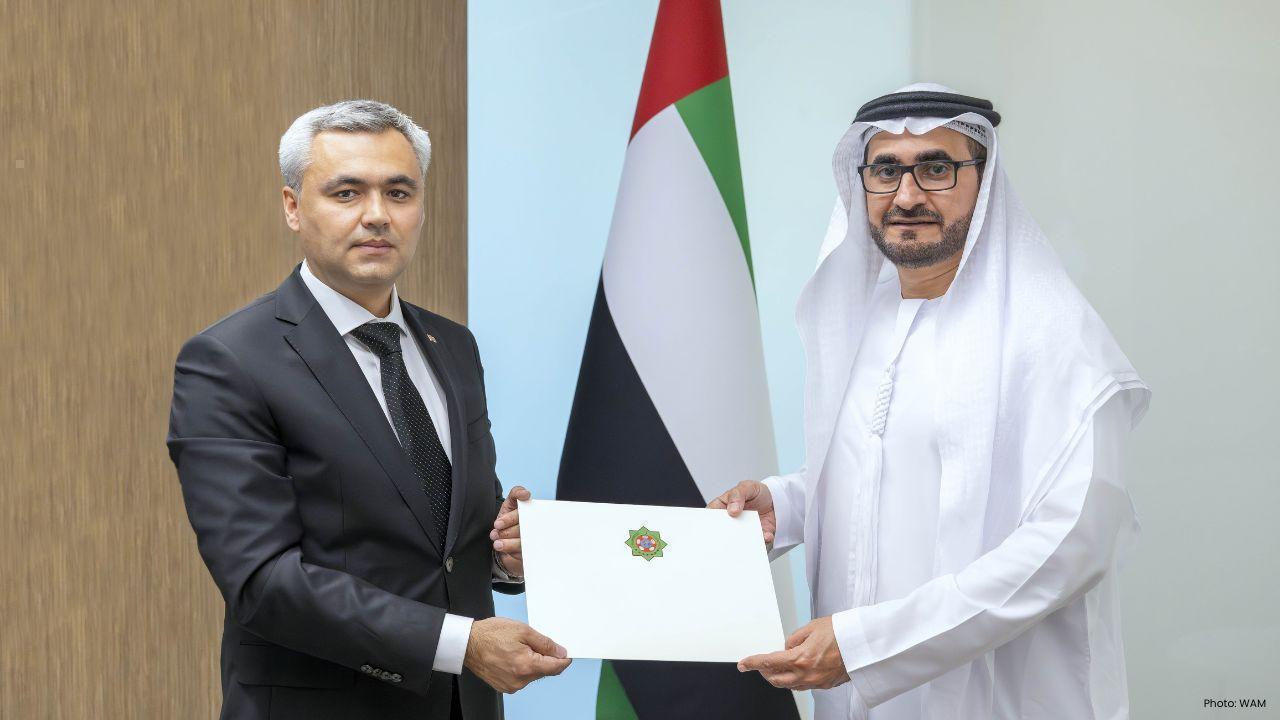
Post by : Mumtaaz Qadiri
The Arab League Educational, Cultural and Scientific Organization, known as ALECSO, has released the official English version of its AI Ethics Code. This Code was first adopted earlier this year. The purpose of the Code is to guide the responsible use of artificial intelligence (AI) in Arab countries. By releasing an English version, ALECSO is allowing a wider international audience to understand and learn from its ethical standards.
Key Principles of the Code
The ALECSO AI Ethics Code is based on several important principles. These include the protection of human dignity, promoting justice and fairness, encouraging inclusiveness, ensuring environmental sustainability, and preserving cultural heritage. The Code also highlights transparency and accountability in AI applications, along with technological sovereignty, meaning that Arab countries have the right to control their own AI technologies. These principles aim to make sure AI benefits society without causing harm.
Guidelines for Education, Culture, and Science
The Code provides clear guidelines on how AI should be used in education, culture, and scientific research. It emphasizes that AI should help improve teaching and learning, support cultural projects, and assist researchers in scientific work. The Code also encourages cooperation between Arab countries, making sure that AI development in these areas follows ethical rules. By setting these standards, ALECSO hopes to align the Arab world with international practices while keeping local values and traditions in mind.
Comprehensive Ethical and Regulatory Framework
This AI Ethics Code is a complete framework for ethical and safe use of AI in the Arab world. It covers both ethical considerations and regulatory guidance. This means it not only explains what is right and wrong but also gives practical rules for organizations, researchers, and governments. The framework helps ensure AI is used responsibly in schools, universities, cultural institutions, and research centers. By following the Code, Arab countries can benefit from AI while protecting human rights and public interests.
Focus on Human Values and Cultural Identity
A key goal of the Code is to protect human values and cultural identity. ALECSO stresses that AI should respect privacy, human rights, and cultural diversity. It should not harm traditions or local cultures. The Code promotes fairness, equality, and respect for all people. It encourages AI technologies to be used in ways that strengthen society, support learning, and improve research, rather than replacing human judgment or cultural practices.
Aligning with International Standards
Although the Code focuses on Arab countries, it also aligns with global standards for AI ethics. This helps ensure that AI systems developed or used in the Arab world meet international safety, fairness, and ethical expectations. By doing this, ALECSO encourages collaboration with other countries and international organizations, sharing knowledge and experiences about ethical AI. The English version of the Code makes it easier for global AI experts, policymakers, and researchers to access these guidelines.
Development and Translation of the Code
The ALECSO AI Ethics Code was originally prepared in Arabic. Experts from member states contributed to its development. The Code was then translated into English by the Arab Center for Arabization, Translation, Authorship, and Publication in Damascus. This translation is important because it allows people outside the Arab world to read, understand, and apply the principles of the Code. It also strengthens ALECSO’s position as a leader in promoting responsible AI in the Arab world.
Promoting Cooperation Between Arab Countries
One important goal of the Code is to improve cooperation among Arab nations. By following the same ethical rules, countries can share research, educational projects, and cultural programs more effectively. The Code provides a common framework that helps governments, universities, and institutions work together on AI projects. Cooperation also encourages learning from each other’s experiences, sharing technology safely, and avoiding mistakes that could harm people or society.
Supporting Sustainable Development
ALECSO’s AI Ethics Code also emphasizes sustainable development. This means using AI in ways that support long-term benefits for society, the environment, and culture. AI should help improve education, preserve cultural heritage, and support scientific research without causing harm. By following the Code, Arab countries can use AI to meet sustainable development goals, including education for all, reducing inequalities, protecting the environment, and promoting inclusive growth.
Encouraging Transparency and Accountability
The Code stresses that AI systems must be transparent and accountable. Transparency means that people should understand how AI works and how decisions are made. Accountability means that organizations and developers should take responsibility for the effects of AI on people and society. These rules help build trust in AI, ensuring that it is used safely and fairly. They also prevent misuse of AI technologies in ways that could harm education, culture, or scientific research.
Role of ALECSO in Arab AI Development
ALECSO plays a key role in guiding the ethical use of AI in the Arab world. By issuing the AI Ethics Code, it provides a clear roadmap for governments, universities, research centers, and cultural institutions. The organization aims to make sure AI contributes positively to education, culture, and science while respecting human dignity, privacy, and cultural heritage. ALECSO’s leadership helps Arab countries adopt AI responsibly and strengthen their position in the global technology landscape.
Importance of the English Version
Publishing the Code in English expands its reach beyond the Arab world. Decision-makers, researchers, educators, and technology experts globally can now access ALECSO’s vision for ethical AI. The English version promotes international dialogue, encourages collaboration, and helps attract expertise from around the world. It also allows Arab countries to show their commitment to ethical AI practices on a global stage.
Responsible AI in the Arab World
The ALECSO AI Ethics Code provides a clear and comprehensive framework for the responsible use of AI in education, culture, and scientific research. It combines ethical principles, practical guidelines, and international standards to ensure AI benefits society while respecting human values and cultural identity. By releasing the Code in English, ALECSO strengthens cooperation between Arab countries and the international community, supporting sustainable development and responsible technological innovation.










South Africa Recover Against Pakistan in Rawalpindi Test
South Africa fight back after early wickets, trailing Pakistan by 247 runs as Stubbs and De Zorzi st

Shaheen Afridi Named Pakistan ODI Captain, Replacing Rizwan
Pakistan Cricket Board names Shaheen Shah Afridi as new ODI captain, replacing Muhammad Rizwan ahead

PSG Held to 3-3 Draw by Strasbourg in Thrilling Ligue 1 Clash
PSG and Strasbourg played a thrilling 3-3 draw in Ligue 1. Senny Mayulu’s late goal helped PSG stay

South Africa Crush Sri Lanka to Record Sixth 10-Wicket Win
Laura Wolvaardt and Tazmin Brits scored half-centuries as South Africa easily chased 121 to beat Sri

Kohli and Rohit Return for India vs Australia ODI Series
Virat Kohli and Rohit Sharma return for India’s ODI series against Australia. Aaron Finch supports t

UN Women Calls for Safe Aid and Recovery for Gaza Women
UN Women urges placing women and girls at the center of Gaza aid, recovery, and reconstruction durin